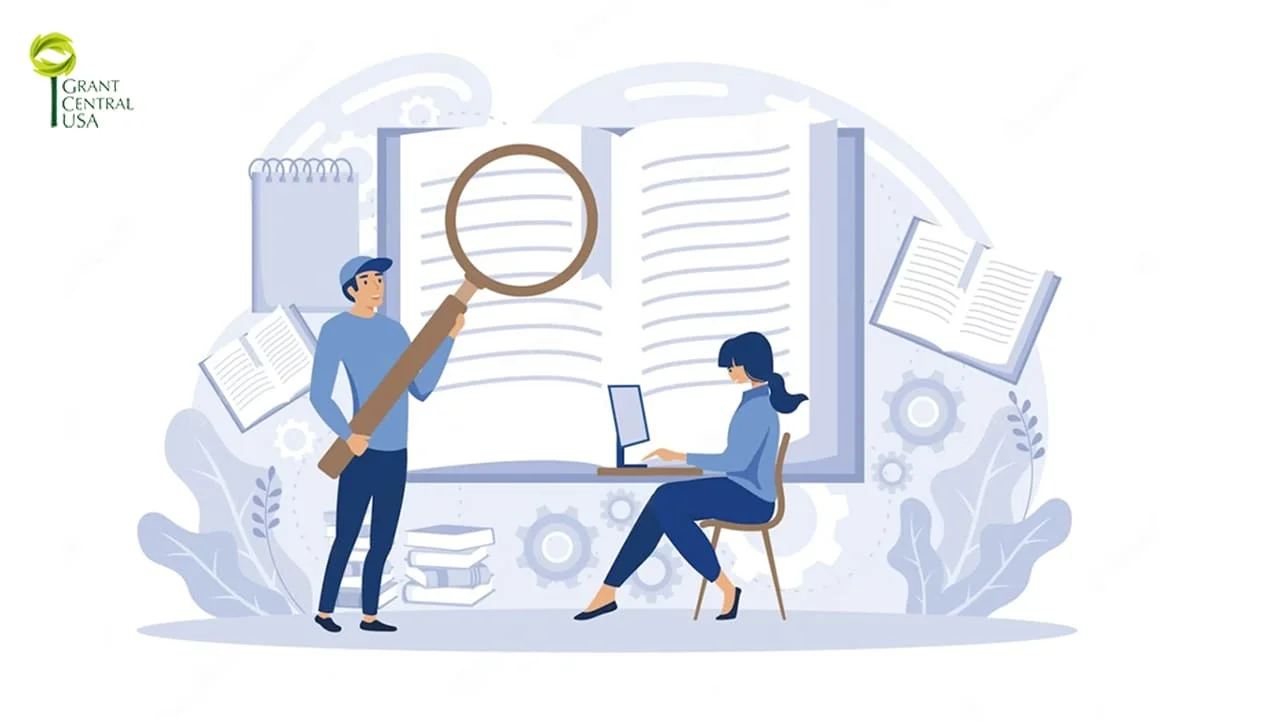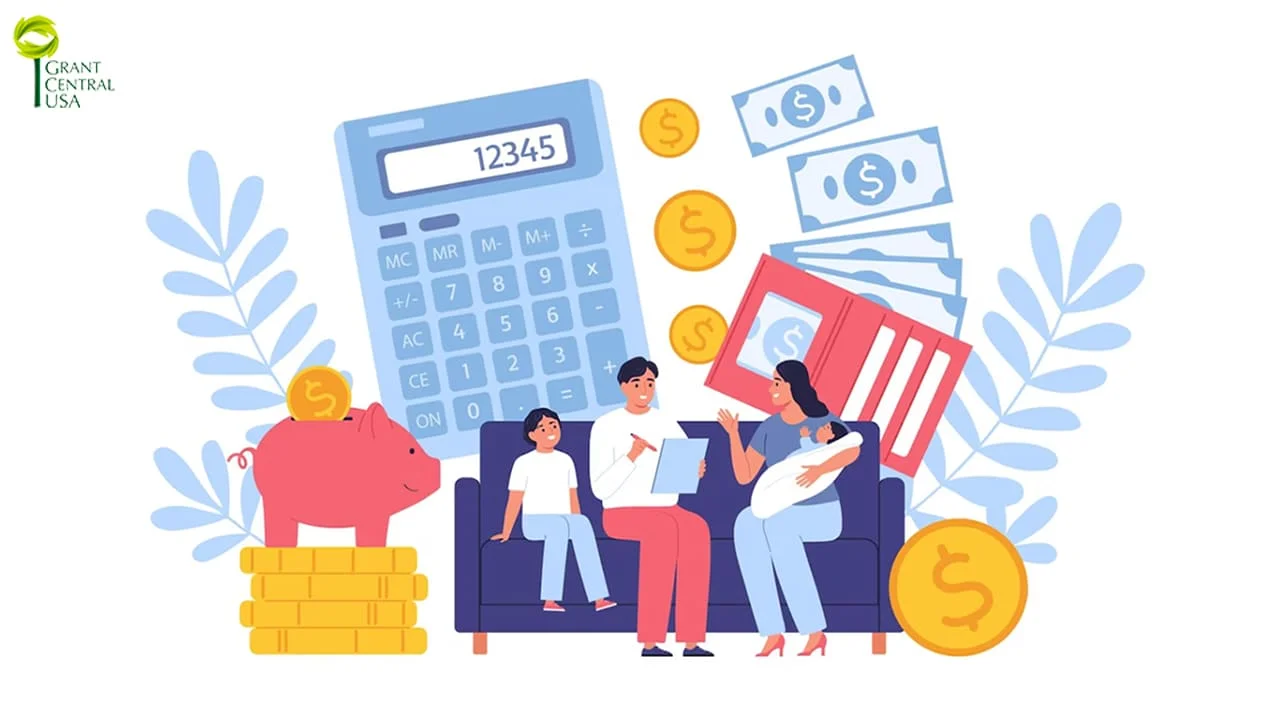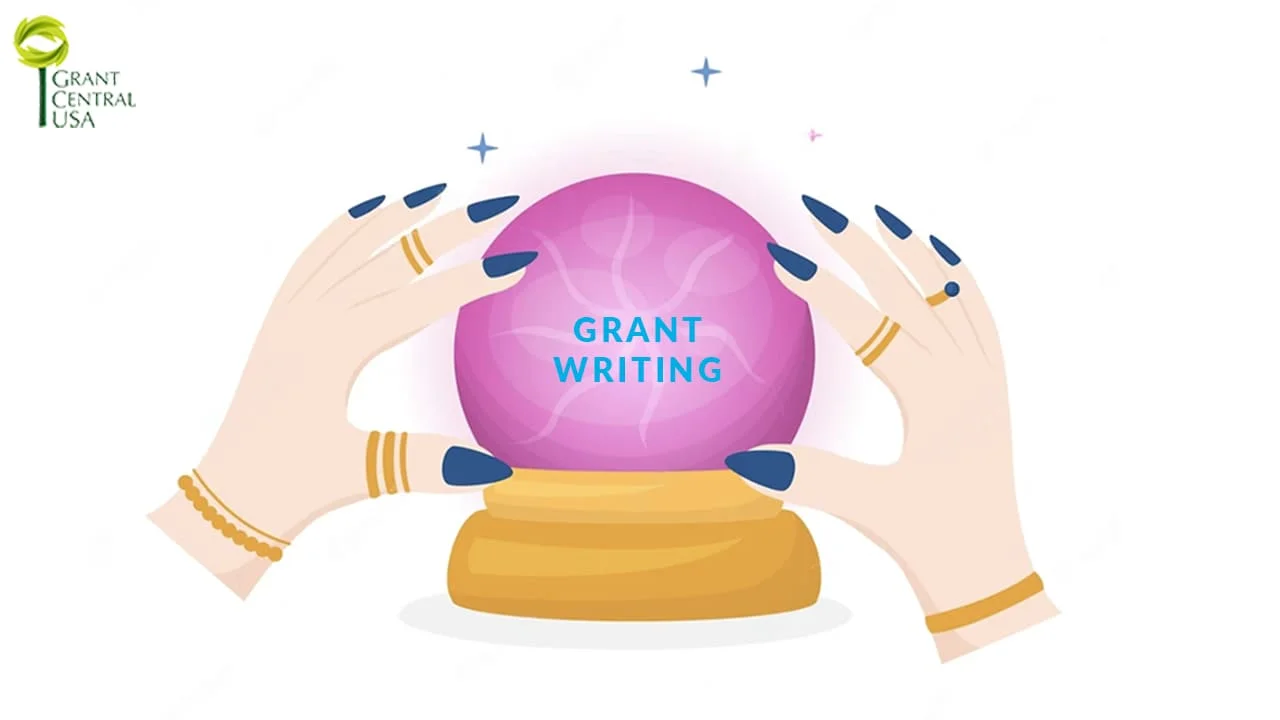Getting Started as a Grant Writer: A Comprehensive Guide
Aug 08, 2023
What is Grant Writing?

Grant writing is the process of, researching grants, and applying for grants to fund projects, programs, and other initiatives. Grant writers work with nonprofit organizations, government agencies, educational institutions, and other entities to secure grant funding that can be used for a variety of purposes.
When applying for a grant, the applicant must present a cover letter, a detailed project plan and other documents that demonstrate why the potential recipient is qualified to receive the funding. Grant writers must be highly organized and have an excellent understanding of the grant writing process, as well as a deep knowledge of their organization's mission and goals. In addition, they must be able to develop persuasive grant proposals that will convince board members and the review committee to award the grant.
Benefits of Being a Grant Writer
Being a grant writer offers a variety of advantages. Aside from the obvious benefit of making money spent writing more, there are other benefits that come with this career.
-
For starters, grant writing is a great way to make an impact in the world. You will be helping organizations receive funding for projects that benefit the public good. This can have a ripple effect on community members as it may help to fund educational initiatives, social programs, and more.
-
In addition, grant writing is a great way to gain experience in the field of research, writing, and fundraising. This provides you with invaluable project management skills and research skills that can be applied to other related positions. You will learn how to effectively research an organization’s needs and develop a plan to help it achieve its goals.
-
Finally, grant writing is a relatively stable career. Grant writing is in demand, so you should have no shortage of potential clients and projects to work on. This means that you can rely on a steady income to cover your expenses and other obligations.
Overall, there are many benefits to being a grant writer. With the right skills and qualifications, full time grant writer, you can make a positive impact on the world and have the stability of a reliable income. A grant writing career can be truly rewarding!
Types of Grant Writing Opportunities Available
Grant writing opportunities come in many forms and are available to:
-
Nonprofit Organizations
-
Government Funders
-
Individuals
A nonprofit organization often secures grants from foundations, corporations, other non profit organizations, or government entities to fund their activities. Government funding is made available to nonprofit organizations through federal, state, and local programs. Individuals may also seek grants to fund their research or creative endeavors, such as writing a book or launching a business.
No matter what type of grant is being sought, there are some steps that must be taken in order to have a successful grant writing experience. First, research should be done to determine what type of grant is available and who the potential funders to write grants might be. Identifying the type of grant you are pursuing, whether it be federal or in the nonprofit sector, is one of the most important aspects because it helps to determine the type of information needed in the grant application.
Getting Started as a Grant Writer

Developing Your Professional Profile and Credentials
There are several ways to develop your professional profile and credentials that lead to becoming an experienced grant writer. Attending courses, earning certifications, or joining a nonprofit grant writer or professionals association are all great ways to build up your credentials.
Courses and certifications provide a great way to increase your knowledge of the entire grant writing process. Taking courses in topics such as grant research, grant writing and proposal development will give you the necessary project management skills and knowledge to become an experienced grant writer. Courses can be taken online, in-person, or a combination of both. Earning certifications in grant writing can also demonstrate your commitment and expertise to potential employers or clients.
Joining a professional grant writing association is another great way to build your credentials and enhance your professional profile. Professional associations can provide you with access to resources, networking opportunities, and training that can help you become a full time grant writer.
Building Your Network

As a grant writer, you need to constantly build your network. By attending grant writing conferences, using social media to connect with other grant writing professionals, and collaborating with colleagues, you can build an effective network that will help you to be successful as a grant writer.
One way to begin building your network is by attending grant writing conferences and other networking meetings. These events can provide you with an opportunity to meet new people, learn more about the grants available in your area, and find out about potential donors. Additionally, attending these events can help you to stay up-to-date on the latest trends and grant opportunities.
Another way to build your network as a grant writer is through social media. Joining relevant groups on Twitter, Facebook, and LinkedIn can help you to connect with other grant writers in your area. Additionally, these networks can provide you with quick access to resources, news, and other potential contacts.
Finally, one of the best ways to build your network as a grant writer is by collaborating with other grant writers and grant writing services. You can reach out to other grant writers research other writing services or other professionals in your field and ask for help or advice on a particular project or issue. Additionally, you can offer your own assistance and experience in return. Building these relationships will help to build a strong support network of other grant writers that you can rely on in the future.
Researching Available Grants

As a grant writer, you are responsible for researching grants that your organization's staff can apply for. This may seem daunting at first, but by breaking it down into manageable steps, you can quickly find the funding and grant opportunities that are best for your organization.
To begin, you should research the different types of grants available and develop a strategy for which ones to target. For example, are there any state or local grants that relate to your organization's mission? Are there any federal grants that fund the same type of programs or initiatives? Once you have figured out the types of grants that are available to your organization, you can start researching the details of each one.
You'll need to create a list of criteria that you are using to evaluate grants. This should include factors such as the amount of funding available, the length of time it takes to receive the funds, and any other requirements that need to be met in order to qualify. You should also check for any deadlines or restrictions related to the grant.
Once you have gathered all of your information from your grant writers research, it's time to start developing a grant proposal.
Developing Proposals and Budgets

As a grant writer, it is important to understand the process of developing effective, grant applications, proposals and budgets. Researching potential funders and understanding their funding requirements is a vital part of the process. Additionally, experienced grant writers must have an understanding of technical grant writing and be able to communicate their organization's goals and objectives in an effective and concise manner. Knowing the basics of grant proposal writing is essential to the grant application process.
The first step in proposal writing is to identify and research potential funders and board members. Knowing the organization's goals and objectives will help determine which funders align with the project plans or initiative. Once potential funders have been identified, it is important to review their funding strategy, criteria and eligibility requirements. This will help guide the grant writer in crafting the proposal to meet the specific requirements of the funding strategy.
In addition to research skills, grant writing professionals must have strong organizational skills and attention to detail. This attention to detail will ensure that all important components of the proposal are included in the grant application. Grant proposals should include a project narrative, budget, and justification.
-
The project narrative should clearly explain the objectives of the project, how it will be implemented, and the expected outcomes.
-
The budget should be complete and accurate, clearly outlining all expenses associated with the project .
-
The justification should include a clear explanation of why the organization deserves grant money.
In conclusion, developing successful proposals and budgets is an important part of the grant writing process. Researching potential funders, understanding their requirements, and crafting the proposal to meet those requirements is essential for successful grant applications.
Following Up After Submissions
When it comes to grant writing, following up after a submission is just as important as the process of researching and submitting the grant proposal. After all, a grant writer’s job is not only to submit quality grant proposals and write grants, but the grant writer must also ensure that the organization receives timely feedback and updates on their grant applications. By staying in communication with the executive director of the funding agency, grant writers can remain aware of any changes to the process and requirements.
It’s important for grant writers to follow up after submitting a proposal in order to stay informed of the agency’s progress. This is especially true if the grant writer has already been in contact with the funding agency during the research or submission process. The grant writer should check back in a few weeks after submitting the proposal to make sure that it was received and is being reviewed.
It’s also important for grant writers to remember to follow up with the executive director and board members of the agency even after securing funding. This is a great way to show that you are invested in the success of your project and that you are committed to meeting the goals of the grant. Staying in communication with the funding agency also helps to build a positive relationship which could lead to future awards or partnerships.
Overall, following up after a submission is an important part of the grant writing process. It shows that you are engaged in the process, possess attention to detail, are respectful of the agency’s timeline, and are committed to achieving success. By staying in communication with board members and the funding agency, grant writers can ensure that their proposal is given the best chance of success.
Growing as a Grant Writer

Pursuing Continuing Education Opportunities
Continuing education opportunities for grant writers is a great way to be recognized as a professional and experienced grant writer. A grant writer must have a minimum of an undergraduate degree to be considered for most positions. A bachelor's degree in a field related to grant writing such as public health, nonprofit management or business can provide the necessary background to launch a career in the grant writing field. Those interested in more advanced education may choose to pursue a master’s degree in grant writing or related fields.

For those already working as grant writers, there are numerous online courses and webinars available to help advance their knowledge or to sharpen their grant writing skills. Many colleges also offer certificate programs in technical grant writing, which provide an intensive introduction to the field and experience grant writing without committing to a full degree program. Courses and certifications can help to demonstrate the grant writer’s knowledge of the field and increase their chances of being hired for more prestigious positions.
Additionally, continuing education opportunities help grant writers to stay up-to-date on the latest research and trends in grant writing. These courses are a great way for a grant writer to gain insight into different types of grants and learn new techniques and strategies for a successful grant writing career.
Continuing education opportunities for grant writers are plentiful and can help to increase the grant writer’s odds of success. Investing in these courses and programs can help to further a grant writer’s career and ensure that they stay up-to-date with the latest trends and strategies in grant writing. By pursuing continuing education opportunities, a grant writer will be able to stay competitive in the field and better position themselves for success.
Joining Professional Organizations and Associations

There are many professional organizations and associations devoted to the field of grant writing. Joining one or more can be an invaluable way for a grant writer to stay informed, network with others in the field, and hone their grant management skills.
Some prominent associations include:
-
Grant Central USA
-
Grant Professionals Association (GPA)
-
Association of Fundraising Professionals (AFP)
-
Council on Foundations
-
National Network of Grant Makers (NNGM)
Each organization has its own unique benefits, but all typically seek funds provide members with access to educational resources and networking opportunities.
When selecting a professional organization or association, it is important to look for one that specializes in the field of grant writing and has several board members who are knowledgeable and experienced in the field. It is also important to choose an organization that offers educational opportunities for grant writers, such as seminars, webinars, and conferences.
Professional organizations and associations provide many other benefits as well. Member-only access to grant resources provides grant writers with an edge when searching for funding. Participating in discussion forums and networking events can also be a great way to make connections with other grant writers and fundraising professionals.
In addition to the benefits outlined above, joining a professional organization or association can provide grant writers with a sense of community and camaraderie. Participating in an organization can also expand a grant writer's knowledge base and help them stay up-to-date on the latest trends and challenges in the field.
Best Practices for Successful Grant Writing Careers

Having a successful grant writing career requires more than just strong writing and editing skills; it also requires a good understanding of the grant application process, labor statistics, project management principles, and research methods. As such, there are some best practices to keep in mind when embarking on a grant writing career.
-
Network
The first best practice is to establish a good network of contacts. This includes researching various organizations and individuals that are involved in grant writing, such as board members of local non-profits, government entities, and corporate foundations. By having a good understanding of the available resources and contacts in the field, it is easier to find the right fit for a particular grant writing job.
-
Fundraise
The second best practice for securing funding, is to become an effective fundraiser. Effective fundraising strategies can go a long way in helping to secure grants. Having good communication and negotiation skills is key for successfully securing grant money. Additionally, it is important to have an understanding of the potential sources of grant funding, and how best to approach them in order to secure more grants.
-
Build a Portfolio
The third best practice is to develop a portfolio of successful grant applications and writing projects. Having multiple projects that have been completed in one’s portfolio can help to demonstrate grant writing competency and provide potential employers with tangible evidence of one’s skill set. Additionally, having successful samples of grant writing can also help to increase one’s competitiveness for other grant applications and writing positions.
-
Stay Up to Date
The fourth best practice is to continually stay up-to-date on the latest developments in the grant writing field. This could include participating in professional development workshops, attending conferences, and reading up on the current trends in the field. Additionally, having a good understanding of the grant application process from start to finish is critical for success when you write a grant.
In conclusion, having a successful grant writing career requires more than just strong writing skills. Developing a good network of contacts, using interpersonal skills, becoming an effective fundraiser, building a portfolio of successful projects, and staying up-to-date on the latest in the grant money field are all important practices for those looking to pursue career in grant writing.
Establishing Your Reputation and Expertise in the Field

Establishing a reputation and expertise in project management skills and grant writing is essential for success.
As a grant writer, you need to build trust and credibility with potential funders and board members. The more personal experience and knowledge you have in the field of grant writing, the better your chances of success.
One way to establish yourself as an expert in grant writing is to pursue professional certifications or attend training sessions that focus on grant writing techniques. Professional certifications will demonstrate your commitment to the field and help you stand out from the competition. Additionally, attending classes or seminars can give you valuable insight into the process of grant writing and teach you about topics such as research methods, budgeting, proposal writing strategies, and presentation skills.
Another way to build your expertise is to network with others in your field. Join local organizations that focus on grant writing and attend conferences. This will give you the opportunity to meet other grant writers and develop relationships with potential funders. Additionally, it can provide you with valuable resources for finding funding opportunities and information about new developments in the field.
Finally, consider writing for publications or creating a blog that focuses on grant writing topics. This will help build your reputation as an expert in the field and can provide you with the opportunity to demonstrate your knowledge and skills.
Establishing a reputation and expertise in grant writing takes time, but it is well worth the effort. By pursuing professional certifications, attending seminars, networking with other professionals, and writing for publications, you can build trust and credibility with potential funders and increase your chances of success.
Conclusion
A Look into the Future of Grant Writing

Writing grants to seek funds has long been a staple of many organizations, but in the coming years, this process is set to undergo a radical transformation. As the world turns towards forward-thinking initiatives such as renewable energy sources, social justice and other underfunded areas in demand, grant writing will become increasingly important. We will take a detailed overview of what grant writing looks like now, and how it is likely to evolve in the future.
The current process for grant writing generally involves a team of experts, including the nonprofit grant writer, executive director, and other key stakeholders. The goal is to acquire funding for projects or initiatives that the nonprofit organization wishes to pursue. This could range from creating a new program for disadvantaged communities, to launching an advertising campaign for an upcoming event. The grant writing team works together to research and develop a proposal that meets the organization’s needs, while making sure it aligns with the requirements of the funding source.
In the future, entire grant writing process is likely to become more streamlined and efficient as technology continues to evolve. Automation and artificial intelligence are already being used to help streamline the grant writing process. AI can be used to quickly input data entry and search through massive amounts of grant information for potential matches. This could help organizations quickly narrow down the most viable prospects and save a significant amount of time.
The rise of big data is also likely to have an impact on grant writing in the future, as powerful analytics tools become more readily available. Grant writing teams will be able to tap into data sets to identify trends, patterns, and correlations that could shape their approach. This would enable them to better understand the needs of their target audience and craft more personalized and impactful grant proposals.
The future of grant writing is an exciting and ever-evolving field with great potential for organizations to make a difference. With proper preparation, organizations can capitalize on the ever-evolving grant writing landscape to make more of a difference and achieve greater success.
Advice for Aspiring Grant Writers

Aspiring grant writers should not be discouraged by their lack of experience or knowledge when it comes to writing grants. There are plenty of resources available to help you get started and become successful in the field experience grant writing.
The first step for an aspiring grant writer is to learn the language and terminology used in the industry. Knowing what terms mean, understanding different types of grants, and being familiar with the application process are key to success. Fortunately, grant writing is an industry that is constantly evolving and there are plenty of online resources offering free information on the latest trends and best practices.
It is also important to understand the types of grants that are available and how they differ. Knowing what type of grant you are applying for can help you tailor your proposal in a way that will be more successful. For example, some grants may require specific language or criteria that need to be met. Familiarizing yourself with the application process and familiarizing yourself with the organization that is offering the grant can also help you create a more effective proposal.
In addition to learning about the grants themselves, aspiring grant writers should also brush up on their research skills. Researching potential funding sources, understanding their criteria for awarding grants, and crafting proposals that meet their standards are all key aspects of successful grant writing. This knowledge will give you a better chance of getting your proposal accepted and will make the entire process to write a grant that much smoother.
Finally, aspiring grant writers should take advantage of any networking opportunities available to them. Networking with other experienced grant writers, and connecting with potential funders can provide invaluable insight into the process and increase your chances of success. Aspiring grant writers should also consider attending professional conferences or workshops, which can be an excellent source of information and networking.
By following these tips, aspiring grant writers can quickly become successful in the field of grant writing.
.